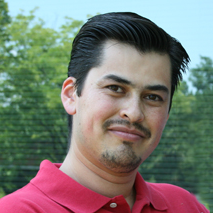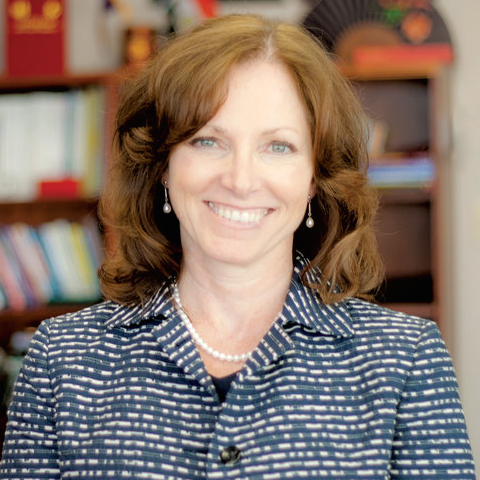HICSS - 51 E-Government Track
51st Hawaii International Conference on System Sciences
January 3-6, 2018 - Hilton Waikoloa Village, Big Island, HI, USA
Overview
Minitracks
Tutorials and Workshops
Other Links
Smart Cities & Smart Governments: The Enabling Role of Research and Practice Collaborations in the Urban Context
Half-Day Workshop: Date TBD



Global economic challenges demand new approaches to urban infrastructure and technology as well as innovative policies to advance and accommodate smart sustainable growth. Throughout the world, cities are seeking to become smarter by pursuing a range of different strategies, including the creation of intelligent transport networks, constructing and retrofitting energy efficient buildings, and harnessing the power of public data sets. Despite the different definitions of, and studies focused on smart cities, there seems to be agreement on the fact that “smart city” is a multidimensional and multifaceted concept that goes beyond the mere use of technology and urban infrastructure. Although technology is a necessary condition for a smart city, it is not the only one. City administration and management, information integration, data quality, privacy and security, institutional arrangements, and citizen participation are just some of the issues that need greater attention to make a city smarter today and in the near future. As cities move forward to become smarter, they are looking to academia as a partner. Some of the worlds’ smartest cities are engaging with academia; often helping to define, other times driving, sometimes studying their smart city agendas.
This workshop will contribute to the development of such partnerships by bringing together researchers and practitioners to explore the joint development of smart programs and projects. The Smart Cities and Smart Government Research-Practice Consortium (SCSGRPC), based at the Center for Technology in Government, University at Albany, State University of New York, is one of the few fora around the world that makes this possible. The SCSGRPC is a robust global research community focused on innovations in technology, management and policy that change the fabric of the world’s cities. Through purposeful networking and collaborative and connected research, the Consortium members come together to share ideas, new knowledge, and research and practice innovations in the interest of increasing opportunity for all those who live and work in these cities.
The workshop “Smart Cities and Smart Governments: The Enabling Role of Research and Practice Collaborations in the Urban Context” is organized by the SCSGRP Consortium. During the half-day workshop, attendees will participate in presentations and discussions to identify common issues and opportunities for research-practice collaborations. This year’s workshop will include:
- A keynote presentation on current opportunities and challenges of smart cities and how a research practice partnership is contributing to cities become smarter
- A presentation on the SCSGRP Consortium: members and activities
- Lightning talks on research-practice collaboration experiences and opportunities
- Plenty of time for discussion
The workshop will complement the paper sessions of the HICSS-51 E-Government Track and, particularly of the Smart Cities and Smart City Government Minitrack.
More information on the workshop leaders:
Mila Gascó holds an MBA and a Ph.D. in public policy evaluation (Award Enric Prat de la Riba granted to the best Ph.D. thesis on public management and administration, given by the School of Public Administration of Catalonia in Barcelona, Spain). Nowadays, she is the Associate Research Director of the Center for Technology in Government as well as a Research Associate Professor at the Rockefeller College of Public Affairs and Policy, both at the University at Albany – SUNY. Before joining SUNY, Gascó served as a senior researcher at the Institute of Governance and Public Management (currently known as ESADEgov - Center for Public Governance) and the Institute of Innovation and Knowledge Management, both at ESADE Business & Law School in Spain. Previous to that, she was a senior analyst at the International Institute on Governance of Catalonia and a professor in the Rovira Virgili University and the Pompeu Fabra University, both in Spain. Gascó has considerable consulting experience on the information and knowledge society as well. In this respect, she has worked for a wide variety of organizations, such as the United Nations Development Program, the Mayor’s Office in Valencia (Venezuela), the Spanish Agency for International Development Cooperation, the City Council and the Provincial Council of Barcelona, the International Institute for Democracy and Electoral Assistance, the Latin American Centre on Management for Development (for whom she co-developed the Ibero-American Interoperability Framework), the World E-Governments Organization of Cities and Local Governments (she was the leading judge for the WeGo Awards), the Inter-American Development Bank, or Google. Her areas of research are mainly related to information and technology in government and, among other, they include electronic and open government, e-Governance, public sector innovation, smart cities, and public policy evaluation.
J. Ramon Gil-Garcia is an Associate Professor of Public Administration and Policy and the Research Director of the Center for Technology in Government, University at Albany, State University of New York (SUNY). Professor Gil-Garcia is a member of the Mexican National System of Researchers and of the Mexican Academy of Sciences. In 2009, he was considered the most prolific author in the field of digital government research worldwide and in 2013 he was selected for the Research Award, which is “the highest distinction given annually by the Mexican Academy of Sciences to outstanding young researchers.” Currently, he is a Faculty Affiliate at the National Center for Digital Government, University of Massachusetts Amherst, and an Affiliated Faculty member of the Informatics Doctorate Program at the College of Computing and Information, University at Albany. Professor Gil-Garcia is the author or co-author of articles in prestigious international journals in Public Administration, Information Systems, and Digital Government, and some of his publications are among the most cited in the field of digital government research worldwide. His research interests include collaborative electronic government, inter-organizational information integration, smart cities and smart governments, adoption and implementation of emergent technologies, digital divide policies, new public management, public policy evaluation, and multi-method research approaches. For more information, please visit: https://www.ctg.albany.edu, http://www.albany.edu/rockefeller/faculty_pad_gilgarcia.shtml
Theresa A. Pardo is the Director of the Center of Technology in Government at the University at Albany/SUNY. She is responsible for overall strategic management at the Center along with building and nurturing CTGs research programs, applied projects, and public-private-academic partnerships. Theresa is also an Associate Research Professor of Public Administration and Policy at the University at Albany. She is one of the developers of UAlbany's Government Information Strategy and Management curriculum in public administration. Theresa is also an active member of the digital government professional community serving regularly on national and international advisory committees, editorial boards, and conference committees.
Workshop Leader
Mila Gascó
Associate Research Director
Center for Technology in Government
University at Albany, SUNY
187 Wolf Road, Suite 301
Albany, NY 12205, USA
Phone: +1-518-442-3892
Email: mgasco@ctg.albany.edu
Co-Chairs
J. Ramon Gil-Garcia
University at Albany, State University of New York
Center for Technology in Government
187 Wolf Road, Suite 301
Albany, NY 12205, USA
Phone: +1-518-442-3892
Fax: +1-518-442-3886
Email: jgil-garcia@ctg.albany.edu
Theresa A. Pardo
Director, Center for Technology in Government
Research Professor, Rockefeller College of Public Affairs and Policy
University at Albany, State University of New York
Albany, NY 12205, USA
Phone: +1-518-442-3892
Email: tpardo@ctg.albany.edu
